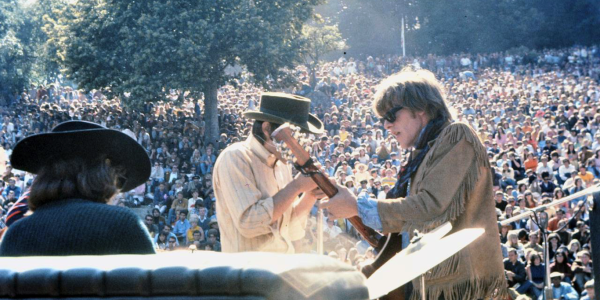Professor Burke's research centers on jazz and popular music in the United States. He teaches courses on such topics as the history of jazz and popular music, music of the African diaspora, and the methods and theories of ethnomusicology.
Patrick Burke received his B.A. in music at the University of Pennsylvania (1996) and his Ph.D. in ethnomusicology at the University of Wisconsin-Madison (2003). Since 2004, he has been a professor of music at Washington University in St. Louis, where he teaches undergraduate and graduate courses on such topics as the history of jazz and popular music, music of the African diaspora, and the methods and theories of ethnomusicology. In 2013-14, he was a Guest Scholar at the University of Oslo, Norway, and he served on the editorial board of the Journal of the American Musicological Society from 2013 to 2018. In past years, Prof. Burke has served as Director of Undergraduate Studies and Head of Musicology in the Department of Music.
Prof. Burke's research centers on jazz and popular music in the United States, with a focus on the relationship between music's performance and reception and the formation of racial ideology. His work has been supported by fellowships from the American Musicological Society, the American-Scandinavian Foundation, the National Endowment for the Humanities, the Rock and Roll Hall of Fame, the Social Science Research Council, and the Center for the Humanities at WUSTL. Prof. Burke is the author of Come In and Hear the Truth: Jazz and Race on 52nd Street (University of Chicago Press, 2008) and Tear Down the Walls: White Radicalism and Black Power in 1960s Rock (University of Chicago Press, 2021). He was also project director, researcher, and writer for the digital humanities project Music and Racial Segregation in Twentieth-Century St. Louis: Uncovering the Sources (link below). Prof. Burke’s current research addresses the role of the Norwegian shipping industry in establishing Western ideas and stereotypes about music of the global South during the Age of Empire. In addition to his academic work, Prof. Burke is a guitarist and composer. He has also performed in a Javanese gamelan and on the amadinda, a Ugandan xylophone.





